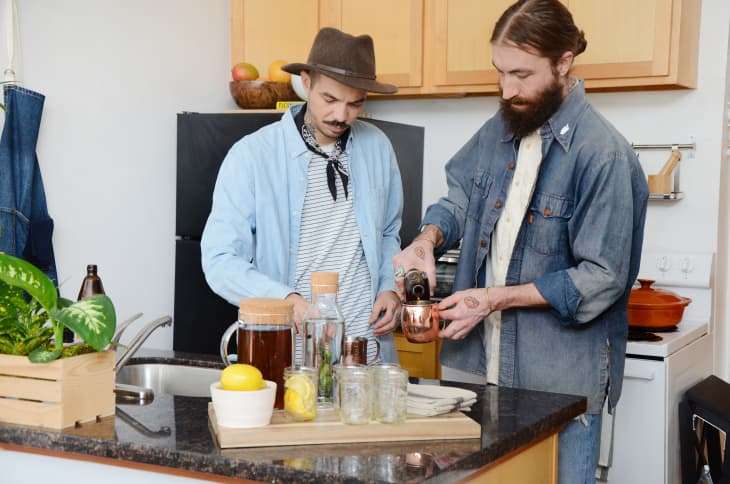When my in-laws came over for Thanksgiving, we had a wonderful time together. Nothing like a visit from grandparents and three fun uncles to keep the kids happy and entertained while I prepared our feast. I was surprised, then, when our ’round-the-table conversation was devoid of the effervescent conversation I’m used to with my own (Italian) side of the family. I became acutely aware of the silence and then the inordinately loud sound of forks tinkling on plates.
I tried to get some conversation going. I asked everyone what their favorite Thanksgiving dish was, which lead to answers around the table that did little to build into any kind of ongoing discussion. Next, I told everyone to look at their silver and see if theirs had my grandparents’ initial carved into them. Those were of the original set of 12 they received on their wedding, I explained.
After a few oohs and ahhs , we were back to fork tinkling. And though my husband later reassured me that this was how his family’s dinners almost always were, I decided to have a few tricks up my sleeve for when I found myself in a similarly uncomfortable silent dinner party situation.
1. Ask open-ended questions.
Open-ended questions don’t have a single answer (the opposite of my favorite-dish conversation-starter flop) and instead are designed to encourage a longer, more meaningful reply. I like these two all-purpose questions suggested by Daniel Menaker, author of A Good Talk , in this New York Times article : “What’s new in your world?” and “How do you spend your day?” These can open up all kinds of avenues of discussion, especially among friends who may not know each other well or around family that isn’t necessarily in each other’s daily lives.

2. Have couples share their stories.
This is a good conversation starter because it immediately involves more than one person being on the spot. People are usually more than willing to share their happy story and everyone loves listening to get-together stories. With any luck, this story can either lead to other couples telling their stories, or to additional topics of discussion springing from the first story.
3. Ask about favorite memories.
These are good conversation starters because, again, they’re open-ended and involve stories. Getting a little more specific than, “Tell me about one of your favorite memories” takes the pressure off of your guests to come up with something on the fly. I love these suggestions from The Spruce : What was the biggest surprise that you ever received/that ever happened to you? What was a favorite place that you lived and why? What was one of your favorite vacations and why? What was one of the happiest times in your life and why?
4. Play Would You Rather?
This is a great one if there are kids at the table. And it’s a fun way to learn some unexpected things about your guests—both through the questions they ask and the answers they give. Each person at the table has to offer a tough choice, like “Would you rather be bald or be forever cursed to have awful haircuts?” It may not lead to soulful conversation, but it will keep everyone entertained as you each explain why you chose the answer you did.
What’s your go-to conversation-starting strategy?

Leave a Reply